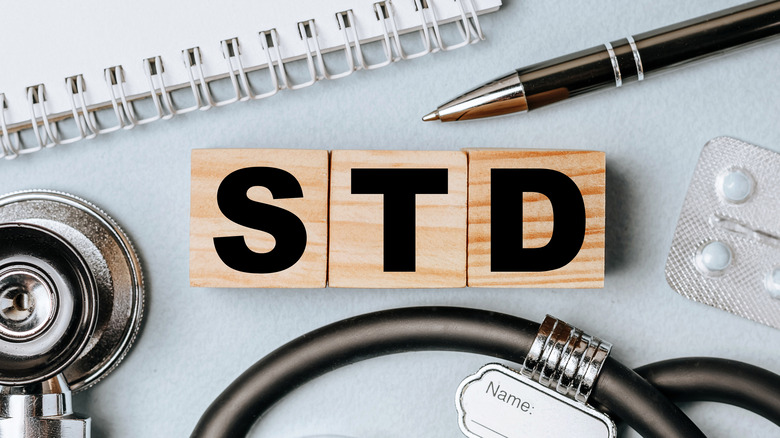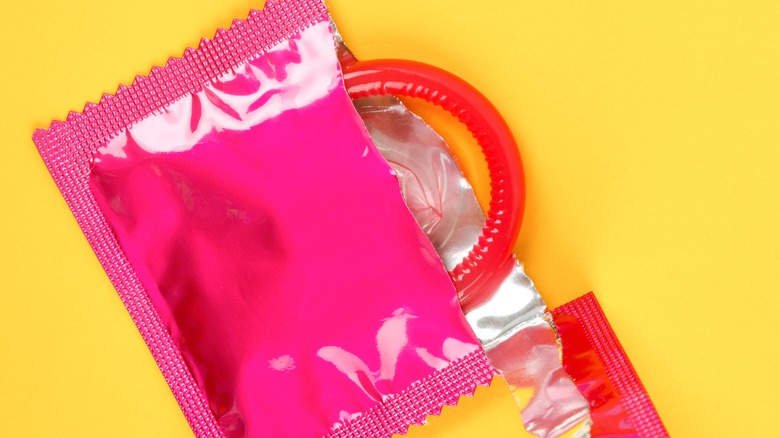Can You Get STIs And STDs From Oral Sex?
According to the statistics available from the Centers for Disease Control and Prevention (CDC), at least 85% of sexually active American adults between the ages of 18 and 44 have engaged in oral sex. Surveys also show that it's a common practice among teenagers. Although most sexually transmitted diseases (STDs) and sexually transmitted infections (STIs) are contracted through vaginal or anal intercourse, it's also possible to get them through oral sex, per Healthline. Since in unprotected oral sex, you come into contact with genitals via the tongue, lips, and saliva, there's a significant risk of harmful agents transferring to your body via the mouth.
Some of the most common STDs including chlamydia, syphilis, gonorrhea, and herpes can be contracted through oral sex, warns CDC. These infections and diseases often show initial symptoms in the throat, rectum, urinary tract, anus, mouth, lips, or around genitals. The CDC claims that the risk of getting HIV from oral sex is quite low, but still may be possible, especially if you are giving oral sex on the penis of a person with HIV. Regardless, it's vital to get the right treatment at the right time to avoid further complications.
How can you get STDs and STIs through oral sex?
The CDC claims that with many STDs, oral sex with a partner who already has it can put you at risk of contracting the disease. You could even be at risk of an infection if you receive oral sex from a person who has a mouth infection. For example, if you give or receive oral sex to or from a person with gonorrhea, of either sex, you might get an infection in the throat, urinary tract, or genital region. To illustrate this, a 2006 study published in the journal Clinical Infectious Diseases reported that men who have sex with men may be at risk of pharyngeal gonorrhea — a condition that was diagnosed in about 136 out of approximately 2,500 patients — and that the risk was higher among those who gave oral sex.
As with any other sexual activity, you can reduce the risk of getting STDs and STIs by using condoms or dental dams and enjoying safe sex, says Healthline. It's always a good practice to pay attention to your dental hygiene as well, suggests CDC. Additionally, you may want to avoid coming in contact with ejaculated fluids of an infected partner. The CDC notes that poor oral hygiene and coming into contact with ejaculate might increase your risk of getting an STD, although more research is needed.


